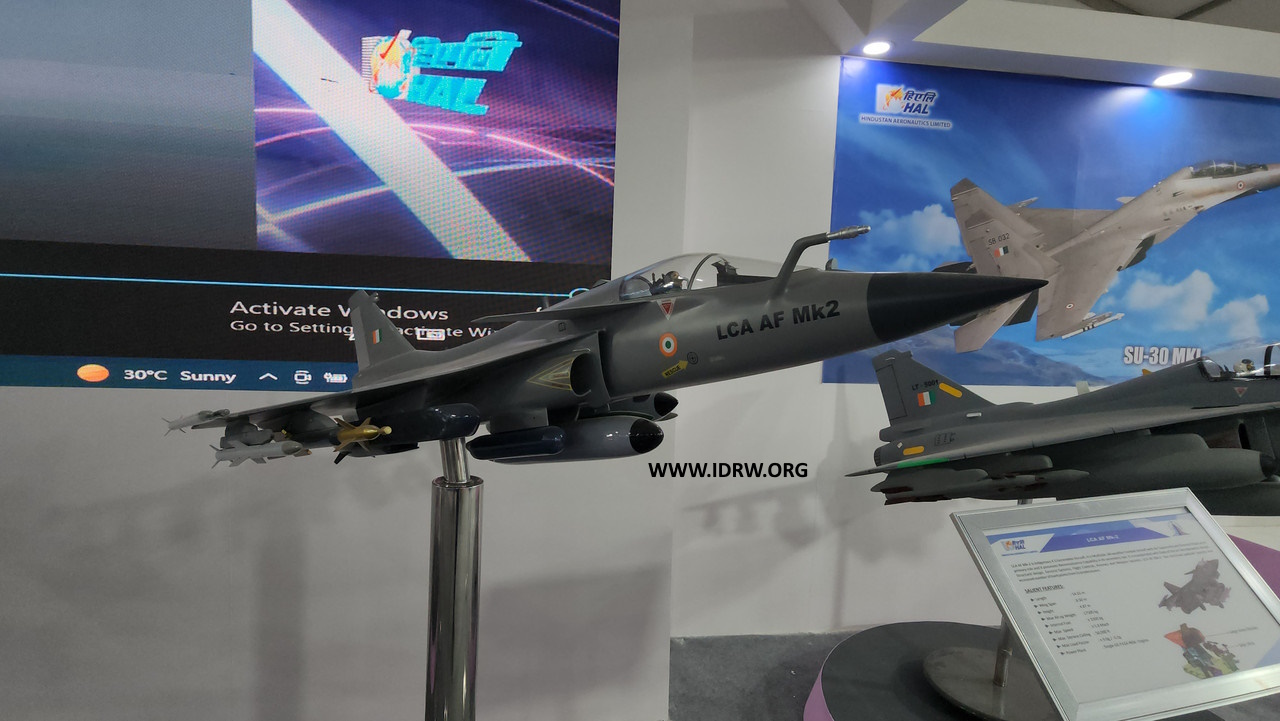SOURCE: RAUNAK KUNDE / NEWS BEAT / IDRW.ORG


India’s Tejas MkII program is experiencing an acceleration in progress following the realization of funds from September onwards. Recent developments, coupled with insights from individuals familiar with the program and vetting of tenders by idrw.org, shed light on the components and timeline associated with the Tejas MkII program. With a focus on enhancing the capabilities of the indigenous Tejas aircraft, the program is poised to achieve significant milestones in the coming years.
The Tejas MkII program has seen a surge in activity, particularly in the procurement of essential components. Recent tenders issued by the Aeronautical Development Agency (ADA) highlight the acquisition of critical elements, including LRUs, Data Acquisition systems, elevon, actuators, rudder actuators, Unified video cum Digital Data Recorder (UVDR) MkII, Hydraulic seals for flight control actuator, components for the Centre fuselage, Aircraft Mounted Accessory Gear Box (AMAGB), and Low-Profile Head-Up Display (LPHUD). These components are slated for delivery from early 2024 to mid-2024.
A significant aspect of the Tejas MkII program is the adoption of a Jig-less assembly setup, scheduled for completion post-mid 2024. This innovative approach streamlines the assembly process and contributes to increased efficiency in the construction of the aircraft. Components for the fuselage, a critical structural element, are expected to start arriving post-mid 2024. The assembly of the Tejas MkII will kick off after the delivery of nearly 9500 parts and components integral to the aircraft’s structure.
While certain system orders are still in the order process, work on the Tejas MkII is anticipated to commence by the end of 2024. The comprehensive assembly of the aircraft is expected to take 8-9 months, with a projected completion date of late 2025. If all progresses as planned, the first rollout of the Tejas MkII is anticipated to take place by early 2026 and first flight later in the year.
While the program’s progress is encouraging, some challenges remain. Ordering processes for several systems are still ongoing, and delays could potentially impact the timeline. Additionally, ensuring quality control and efficient assembly will be crucial for the success of the Tejas MkII.
NOTE : Article cannot be reproduced without written permission of idrw.org in any form even for YouTube Videos to avoid Copy right strikes. Websites doing illegal reproductions will get DCMA and Legal Notices.